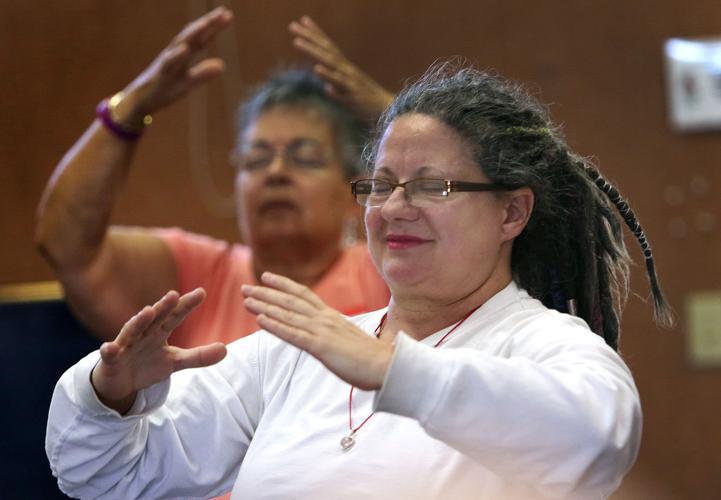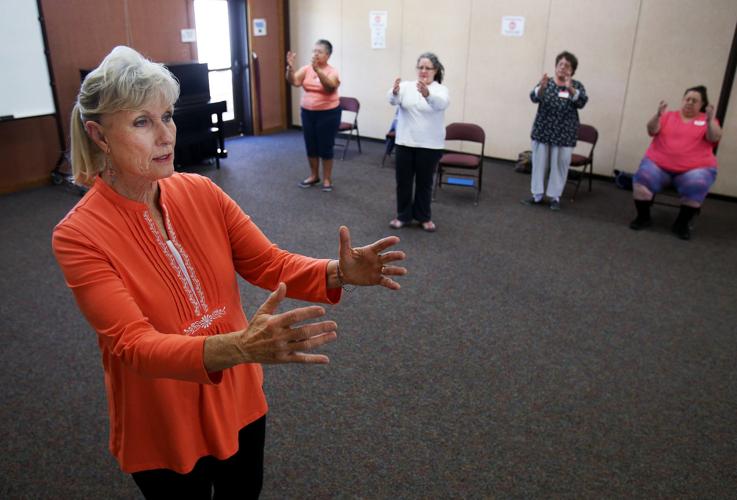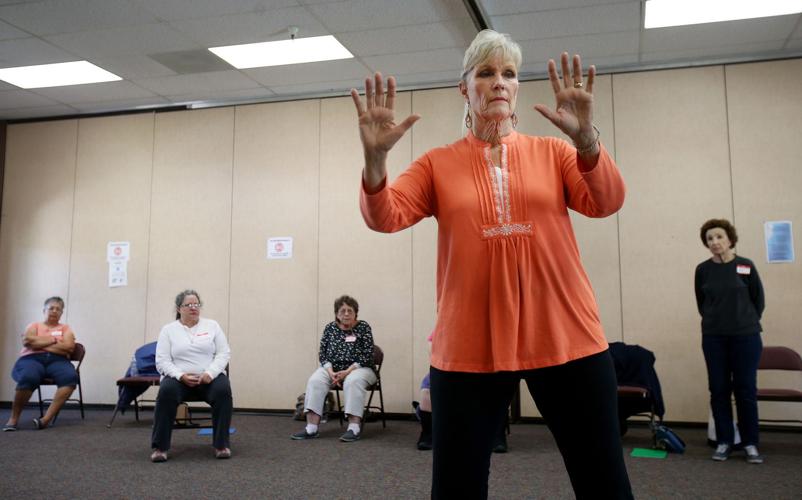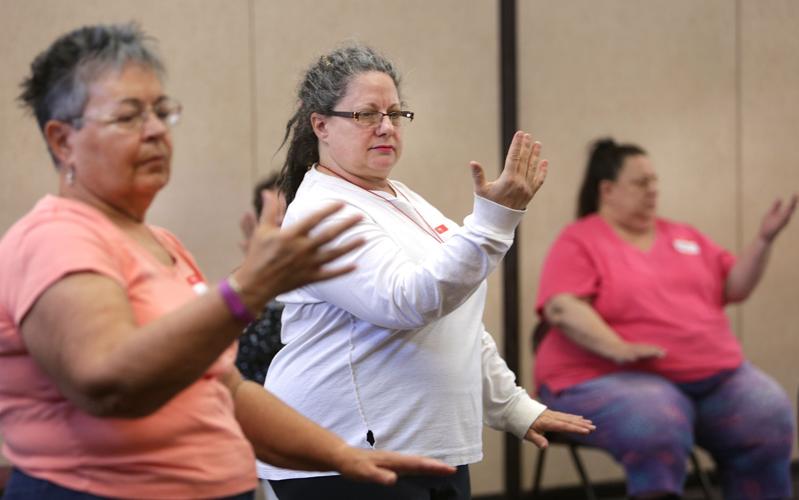The soft, relaxing sounds of Chinese music meet the gentle movement of students’ feet. The only other sound in this carpeted room is light breathing.
“Feel the movement internally,” says Susan Cooper in a soothing voice.
“Do you feel that in your core?”
Cooper is leading an advanced tai chi class at the Casas Adobes Congregational Church.
Tai chi, an ancient Chinese martial art that is touted as an exercise promoting balance, breathing and a calming spirit, is taught in churches, gyms and community centers around the city. It is slow, with stylized movements, but don’t let the speed fool you: practitioners and experts say it is packed with health benefits.
Mary Walsh will attest to that. She started practicing tai chi a year ago.
“Mostly, my balance has improved,” Walsh says after finishing Cooper’s class. “But tai chi provides an awareness of your body. Even when I’m just walking in the morning, I’m more aware. I feel like my feet are planted on earth.”
During the class, Walsh closes her eyes as she focuses on a warmup exercise. She rolls her shoulders back and inhales. She rolls them again and exhales.
The warmup over, Walsh shifts her weight to her right leg. She lifts her toes tucked in her gray tennis shoes, and moves her weight to her left leg. She lifts her right heel, pivots, lifts her toes, and brings her weight back to her other leg. She takes a step forward.
“The whole thing with tai chi is moving your body in different ways,” Walsh says. “You just feel the swaying and the slowness of the movements.”
All of Cooper’s students, including Walsh, are senior citizens, some in their 90s.
“Tai chi is good for you, no matter how old you are,” Walsh says. “Learning new things is always good, no matter how old.”
Walsh’s classmate Lou Ann Bieging has been practicing tai chi multiple times a week for about a year and a half.
“When I started tai chi, I was at an OK level personally,” Bieging says. “But I know my balance is better now.”
Bieging follows Cooper and Walsh as they walk in an oval shape around the room. Their heads are lifted high; they’re standing up straight. They inhale. They exhale. There is an absence of wandering eyes as they focus on their own steps. They aren’t perfectly synchronized with one another, but they’re close.
“Last fall, I was hiking and I fell,” Bieging says. “I stumbled and misjudged the trail. I hurt myself, but I think I would have taken a worse fall if I hadn’t practiced tai chi — if I didn’t have the three-dimensional sense of where you are that I learned from tai chi.”
Bieging says she finds herself thinking of her posture and breathing on a regular basis, not just in her tai chi classes.
“My breathing has been better,” she says. “When I go to my doctor for a check-up, he says my breathing sounds are fabulous.”
And although she’s seen many health benefits since beginning tai chi, Bieging says she does it simply because it feels good.
“I feel great when I leave class,” Bieging says. “It might not be as much of a workout as going to the gym, but the gym is boring. I like coming to tai chi.”
Cooper’s second class of the day begins to file in as Bieging and Walsh finish their closing moves.
This class, with eight students, is a beginning course. Some are there for the first time.
“Imagine you’re standing in a nice warm liquid,” Cooper tells the second class as they stand up to begin. “It’s a liquid right above your shoulders. It’s like Mrs. Butterworth’s maple syrup.”
The class practices breathing. Exhaling breaths and the sound of a waterfall playing on Cooper’s iPhone are all that is heard for a few moments.
The students stand as if they’re sitting on an imaginary stool. Their hips and knees are slightly bent, but their spines are straight.
“I can show you how to get better balance,” Cooper tells the class. “But I can’t give you better balance.”
Jeanne Bailey stands in a semicircle with her peers. Her hands go up as she inhales, down as she exhales.
Bailey has been practicing tai chi for six weeks.
“I have an issue with balance,” Bailey says. “Tai chi makes me more aware of how I’m standing.”
Bailey’s daughter is a physical therapist who suggested that Bailey try tai chi. Bailey goes to Weight Watcher meetings, where tai chi was also recommended for balance and strength.
“I was a nurse,” Bailey says. “I know that falls and broken hips are major problems as you age. It’s really important for me to get my balance down.”
Cooper began teaching tai chi in 2004, and since then, she has seen countless benefits from her tai chi students.
“I have one lady who started tai chi with me in 2004 and another lady who started in 2005,” Cooper says. “They’re still doing tai chi. They tell me they can put their pants on standing up instead of having to sit on their bed. Or they mention they haven’t fallen down since they started the class,” Cooper says.
“Most people who have done this for a while will tell you that they just feel so much better,” she says.







